Homemade natural soap recipes for making that perfect and memorable gift. Nothing says, “I love you” like a bar of homemade soap. Some of these homemade natural soap recipes are a little more advanced than the others. If you are just dipping your toe for the first time you might want to try Hartnana’s Easy Goat Milk Soap recipe. Hartnana’s recipe is a true homemade soap recipe using lye. A few of the following recipes use a base that you melt so you don’t have to mess with the lye/oil mixing. You don’t even have to have goats or access to fresh goat’s milk to make Hartnana’s soap.
Once you have that super simple and forgiving soap recipe down you are ready to dip your toe into these more innovative and fun homemade natural soap recipes.
What you will need to make this Honey Oatmeal Handmade Natural Soap Recipes
- 2 tablespoons of honey
- 2 tablespoons plus 1 teaspoon quick oats
- 1/2 pound of goat’s milk soap (this is measured by using 1/4 of the container of the goat’s milk suspension soap)
&
- measuring cup
- knife
- plastic spoon
How to make this:
- Use a coffee or spice grinder to grind up the two tablespoons of oatmeal. It will become a fine powder.
- In the measuring cup, cut the soap suspension into cubes, using a knife. The soap cuts easily, like cold butter. It will be just a little more than a cup.
- Microwave in 30 second increments and stir after each 30 seconds. If your house is warm, it should take just a little over a minute to melt fully. Overheating will cause the soap to bubble up, so watch this carefully. (NOT speaking from any experience or anything there) ahem…
- Stir well with the plastic spoon and make sure all the lumps of soap are melted.
- Remove from microwave and add in your ingredients, the ground oatmeal and the honey.
- Stir the mixture well. If you bought colorants, add in 6 drops of yellow and 2 drops of red to make a deep pale-yellow color. It did bubble up a bit, but I didn’t mind that, especially when I saw how pretty it actually made the soap. Perfectly imperfect.
- Into the mold, sprinkle the teaspoon of whole oatmeal flakes all around two soap molds. Each cup of melted soap will make about 2 bar sized soaps.
- Pour in about half the mixture to one soap mold. Then pour the other side, trying to make the soaps even.
- Do not move the soap mold once you have poured the soap. If you need to, place the molds on a tray before beginning, so that you can move them later on.
- Allow the soap to set for at least 20 minutes. Then place in a cool spot to dry (really to cool) for several hours.
- I removed my soap the next day- they just pop right out of those silicone molds- and I let them sit on a couple sheets of paper and dry out a bit. I also use this trick for the bar soap in our bathrooms. They make the room smell nice and it helps them to last longer in use. Three or four days is a good amount of drying time.
6 bar mold 10 individual soap molds
10 individual soap molds 8 decorative soap molds
8 decorative soap molds soap mold with pattern
soap mold with pattern
&
Goat Milk And Coffee Homemade Natural Soap Recipes
- Goats Milk Soap Base (2 lbs of soap base will yield eight large 4 oz. bars of soap)
- Soap Mold
- Coffee Grounds (can be used or unused)
- Coffee Essential Oil
- Microwave Safe Measuring Cup w/ Spout
I use about 1 lb (or half of the block) of soap base at a time which makes four large 4-ounce soaps. The block of goat’s milk soap base cuts easily with a kitchen knife. I slice the soap base into cubes, place them inside a 4-cup Pyrex measuring cup, and melt in the microwave in 20-30 second increments, stirring well after each microwave session to ensure that the soap is completely melted. For 1 lb of soap, I generally microwave for 30 seconds, stir, microwave for another 30 seconds, stir again, and microwave a final time for 20 seconds.
When the soap base is completely melted, add the coffee grounds and 15 drops of coffee essential oil. You can use as much or as little of the coffee grounds as you prefer – they are mainly for exfoliation purposes as the majority of the soap’s fragrance comes from the coffee essential oil. Pour the mixture into the soap molds and allow to sit undisturbed until cool (about 30-60 minutes depending on temperature/humidity).
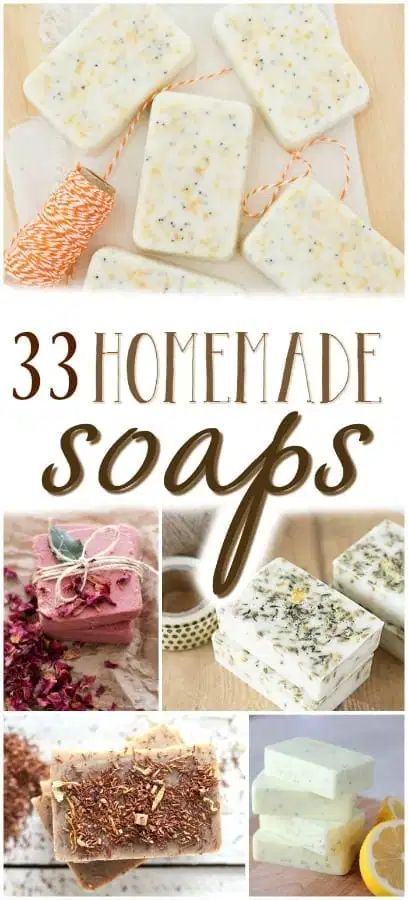
Stacy from SixDollarFamily.com share links to 33 different homemade natural soap recipes here.
Most of these can be made either on the stove in a heavy bottomed pot or in a basic crockpot. I keep an extra pot and an extra crock pot that I picked up thrift store shopping on hand for making my soaps. It keeps my soap supplies separate from my cooking supplies so that there isn’t any chance of the two being cross contaminated. If you do need to use pots and things that you cook in, be sure to rinse them extremely well and to soak them in white vinegar to help remove any residues.
Calendula Homemade Natural Soap Recipes
This is Jan’s recipe for Calendula Soap from Natural Soap Making
LIQUID & LYE PORTION
- 4.17 oz (118 g) lye (6% superfat)
- 9 oz (255 g) calendula tea
OIL PORTION (30 OUNCES TOTAL)
- 15 oz (425 g) olive oil (50%)
- 8 oz (227 g) coconut oil (27%)
- 2.5 oz (71 g) castor oil (8%)
- 4.5 oz (128 g) sunflower oil (15%)
She suggests substituting sweet almond oil for the sunflower oil, so that’s just what I did. I used lye from Essential Depot but you can find it on Amazon. You will also need dried calendula flowers for this recipe, to make the calendula tea.
Sweet Almond Oil Lye For Making Soap
Lye For Making Soap Calendula flowers
Calendula flowers
&
To make the calendula Tea Do this:
The first step is the make the calendula tea. This is pretty straightforward, just steep dried calendula flowers in boiling water, then strain.
How to Make the Calendula Soap for this Homemade Natural Soap Recipes:
- Then cool the tea completely so that it is at room temperature. This is very important, so don’t be in too much of a hurry! Then weigh out the tea into the heatproof plastic container.
- Put that in the sink (or outside, if that’s where you’ll be soaping), then carefully weigh out the lye, making sure you are taking all the necessary precautions with gloves, long sleeves and goggles if needed. You absolutely do not want to come in contact with the lye at all. Make sure there are no children or pets in the area.
- Next you pour the lye into the liquid (in this case, the calendula tea). You always want to pour lye into liquid to avoid a volcano! It will become very hot very fast, so be careful. Stir well, but don’t breathe in the fumes. Make sure there are open windows and fans blowing if needed, if you are indoors. Once the lye is completely dissolved in the liquid, leave it be and weigh out the oils.
- Pour the oils into the big pot and gently warm them to about 100°F or so. When both the liquid and lye mixture and the oils are around 100°F (+/- 20°F is ok), slowly drizzle the lye mixture into the oils. Rinse the lye container with cold water and set aside. Then use the immersion blender to mix the soap batter, alternating 30 seconds on and 30 seconds off. You may have to tilt the pot a bit in order for the blender to be completely submerged.
- After a couple of minutes, you will notice that the mixture will start to thicken. What you are looking for is called “trace”. This is when it is thick enough that the soap leaves a pattern on the surface before sinking back in.
- When you get to this point, it’s time to pour it into your parchment lined mold.
- Cover with something (I used a piece of cardboard) and wrap a few towels and blankets around it to keep it warm. Check on it every hour or so for the first few hours to make sure it isn’t cracking. If it is, take the towels and blankets off to let it cool quicker.
- Put all of your soap making equipment aside in a safe place to wash the following day (isn’t that great?). It won’t be as harsh after it sits for a while, so it’s better to wait.
- Let the soap sit in the mold for 24-48 hours. Here is what mine looked like when I took it out.
- You have to wait to use it for 3-4 weeks so that it can cure! It will mellow with time, become harder and gentler, so you gotta wait. I know, it’s tough! Lie them out on a parchment lined rack and flip every so often.
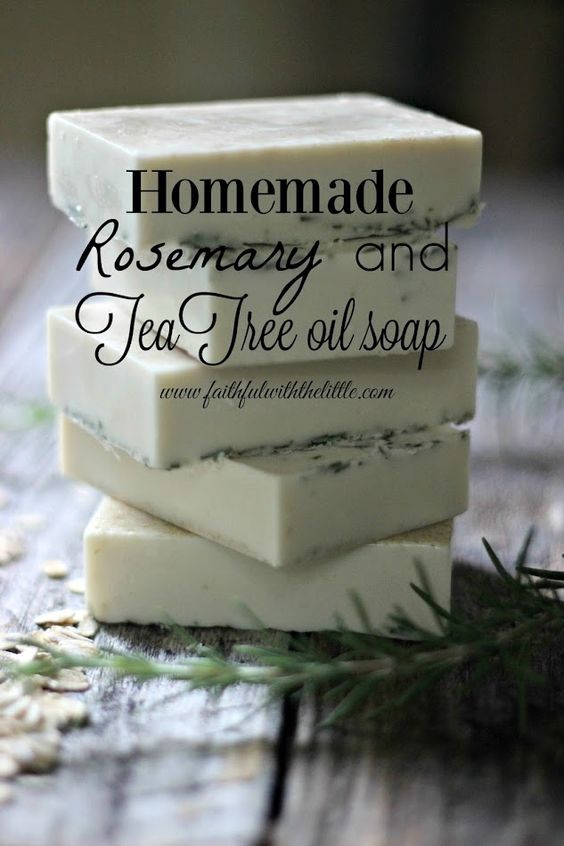
Rosemary and Tea Tree Oil Homemade Natural Soap Recipes
Here’s what you will need to make this homemade natural soap recipes:
*1 lb. of Organic Goats milk soap base- Where to buy
*1 oz of Beeswax- where to buy
*A few sprigs of Rosemary- Grind leaves till fine in a coffee grinder till it makes about 1tsp- we have some growing in our yard but you could get some at the grocery store or your local nursery
*2Tbs. honey- we of course use our own raw honey;)
*2Tbs. Almond oil- Where to buy
*1Tbs. Vitamin E oil-Where to buy
*15 drops of Rosemary oil- where to buy
*15 drops of Tea Tree oil- where to buy
*a few drops of lavender oil if desired
*Pyrex 2 cup measuring cup- where to buy
*Soap mold- where to buy
*Kitchen scale- optional- where to buy
Fill a pot with water and place a heat proof bowl on top that fits to make a double boiler. Keep on low. Should be simmering not boiling. Cut up soap base and place in bowl. Add beeswax. Mix until melted. Add Almond and Vitamin E oil and Rosemary. Remove from heat and add essential oils. Transfer to Pyrex measuring cup and pour into molds. Then keep on a flat surface until it hardens or place in freezer for quicker results. I usually make it in batches and make enough to last for at least a couple of months.
Not only are these great practical gifts to give but they are so easy to make. All you need is a little time to melt the ingredients and let them harden.
So, there you go a whole bunch of different easy to make homemade natural soap recipes that would be perfect gifts or for using at home with your own family.
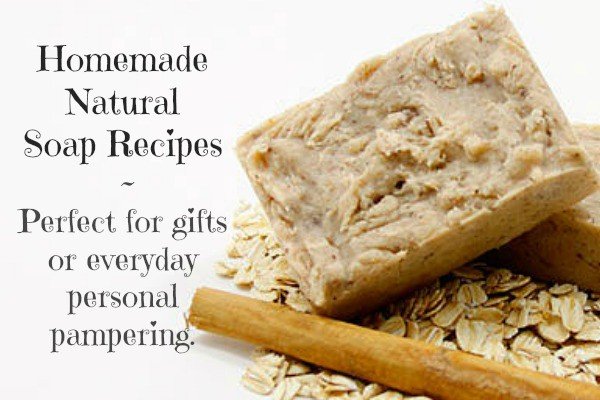
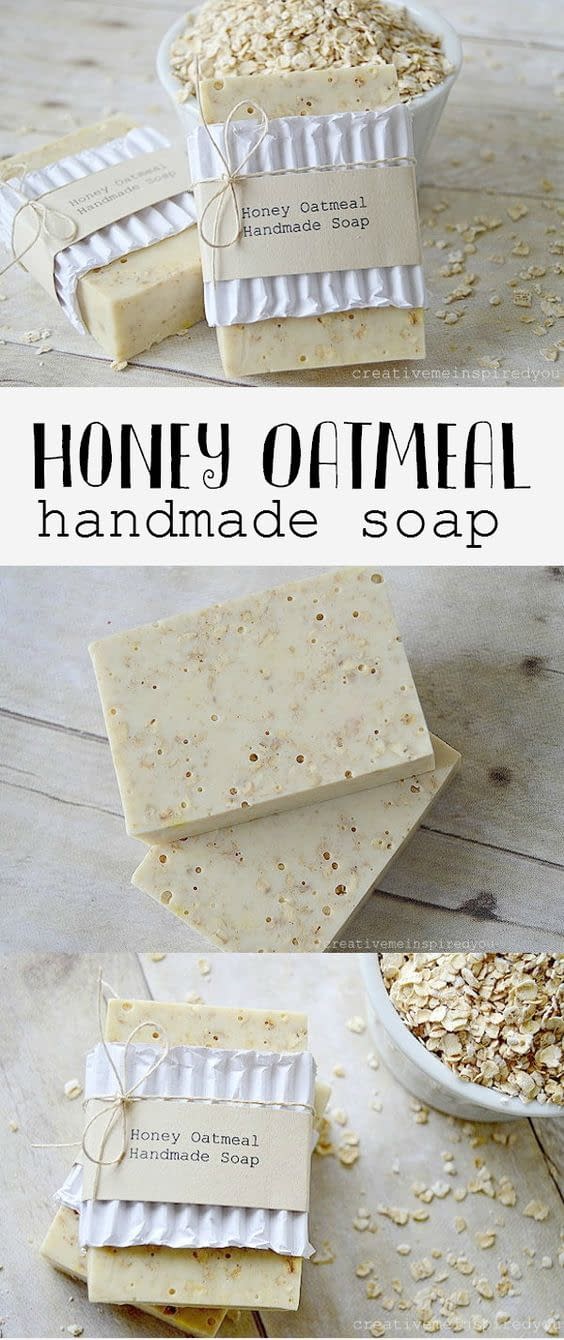
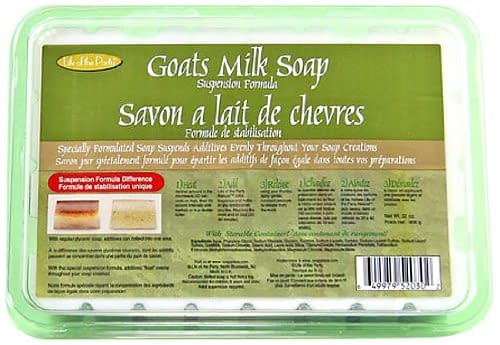
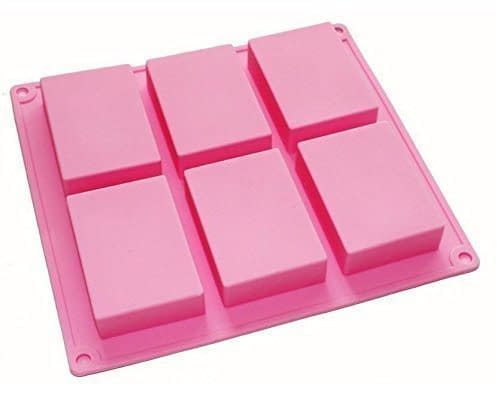
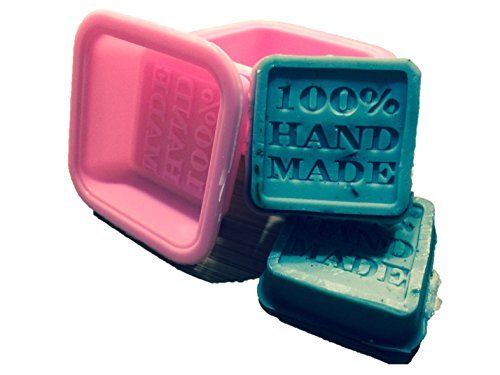
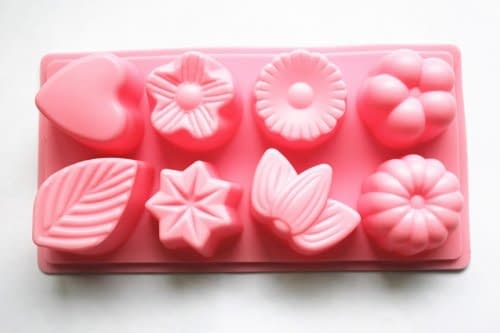
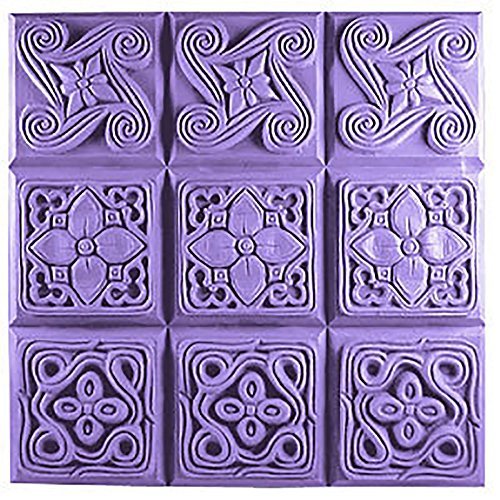
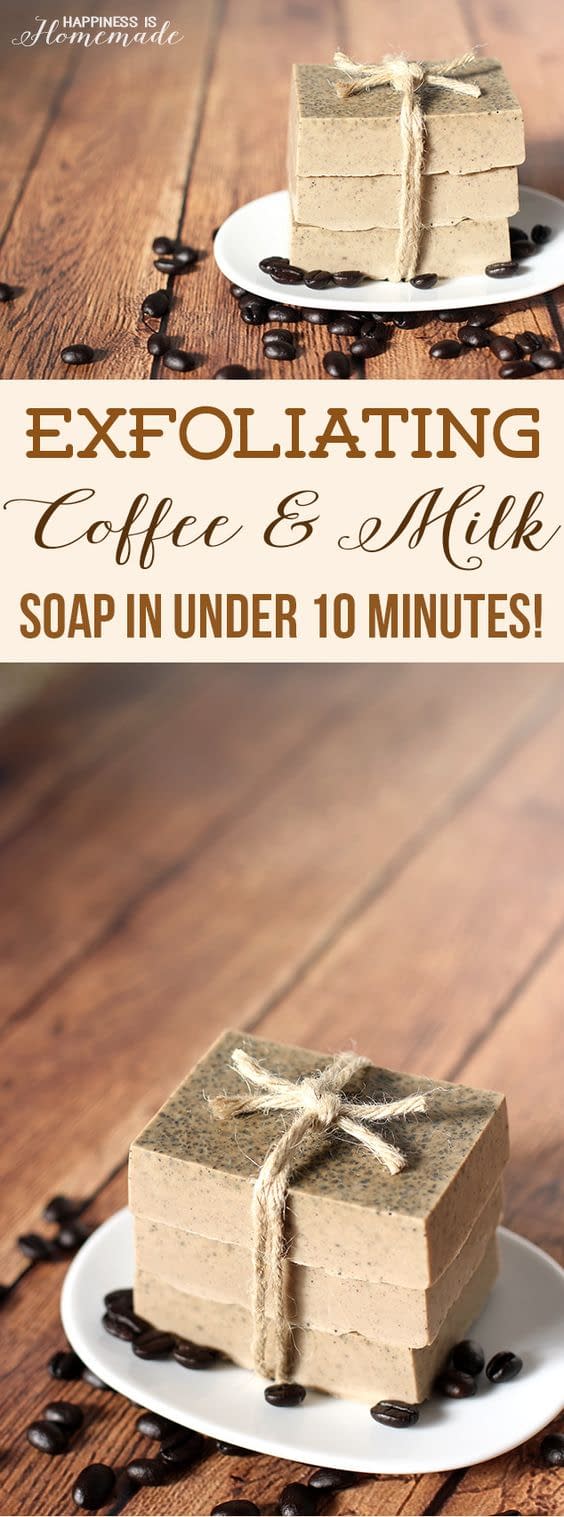
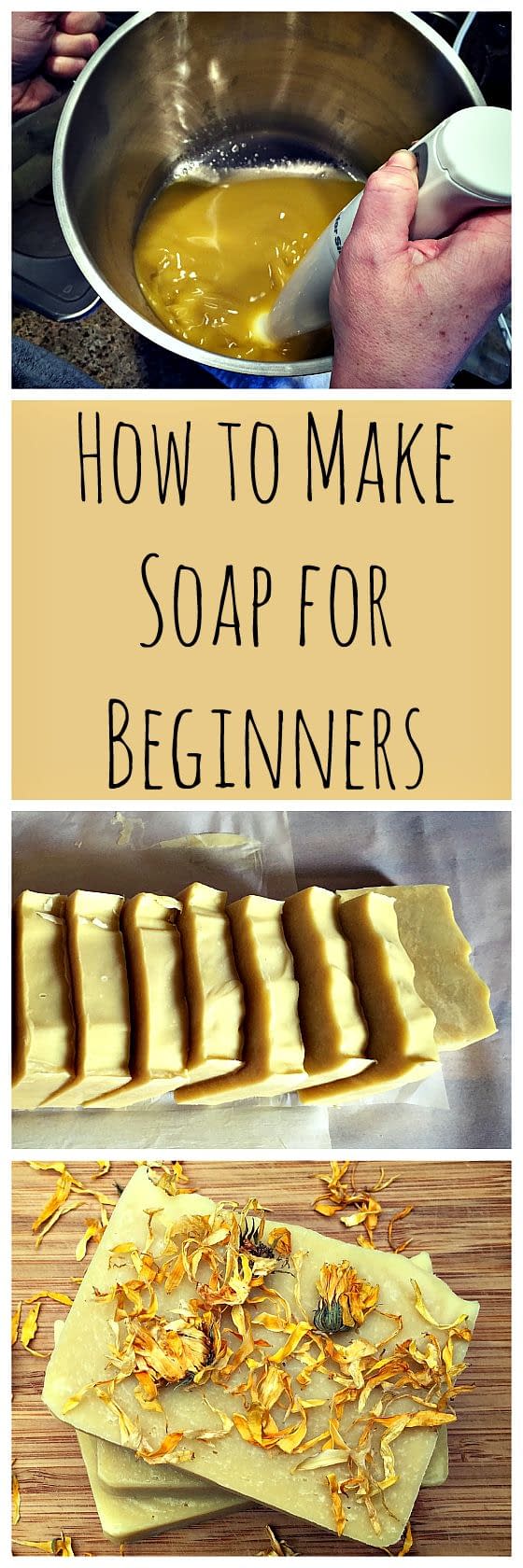
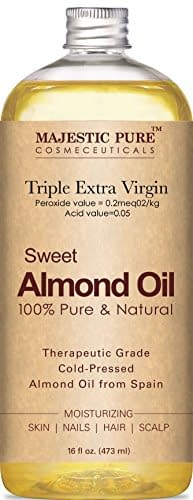
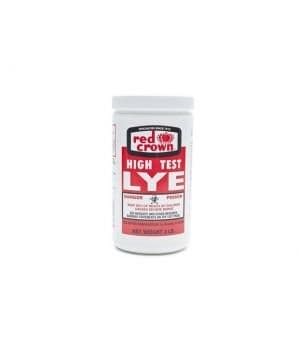
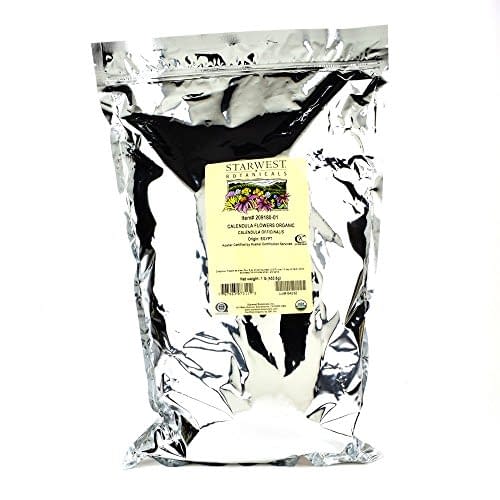

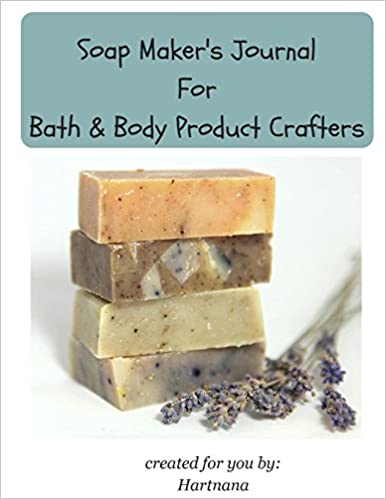 Find this on Amazon:
Find this on Amazon: